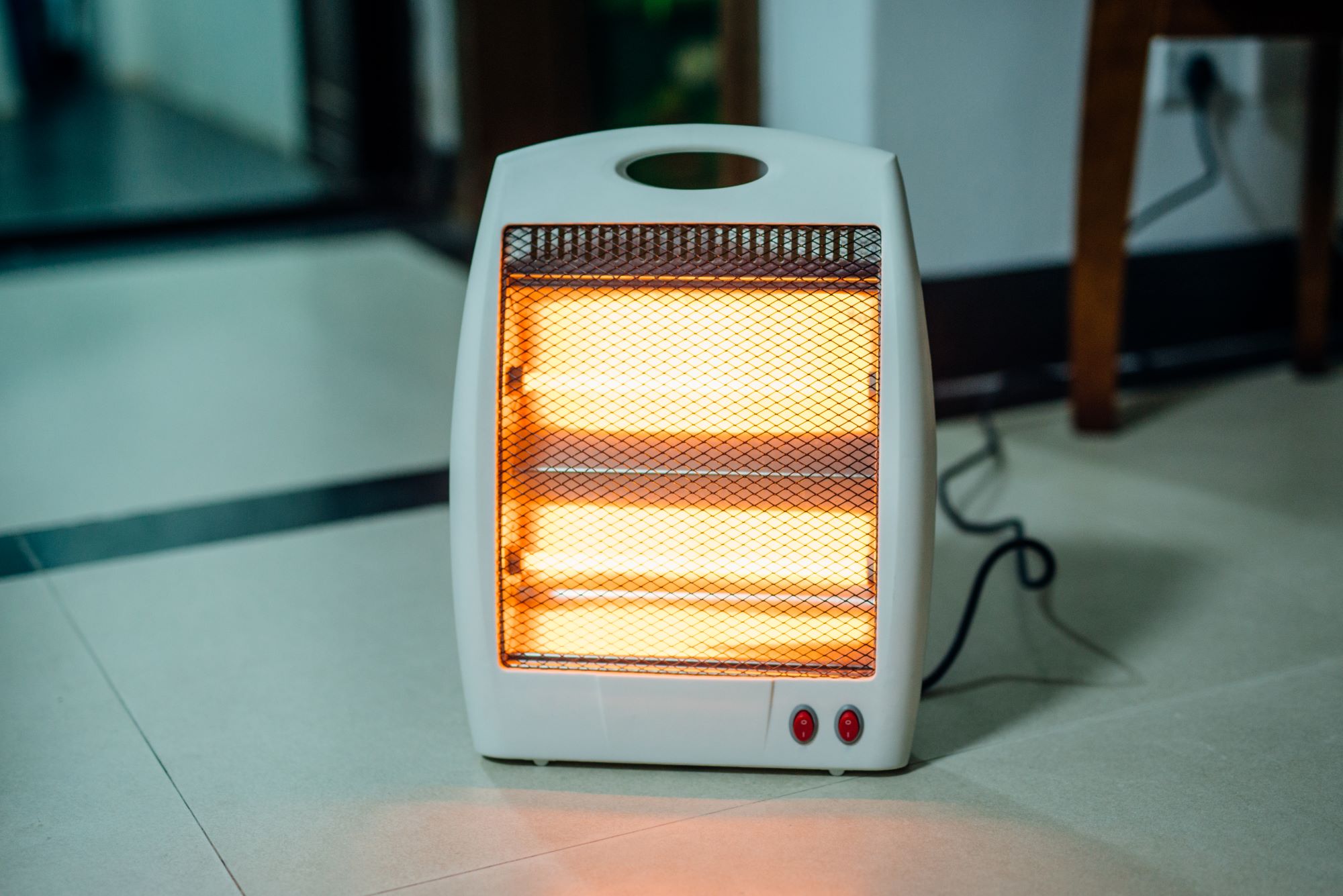How much does a halogen heater cost to run and why they can be more efficient
Halogen heaters can be useful home additions. Here's how much electricity they use and in which circumstances they can be cheaper to run than other electric heaters

Getting the most bang for your buck by seeking out alternative sources of heating is more important than ever, so how much does a halogen heater cost to run?
Halogen heaters are a type of electric heater but unlike other electric heaters, such as fan heaters and oil-filled radiators, they work using radiant heat rather than convection. This makes them handy in particular situations, compared to other types of electric heater, meaning when it comes to energy saving tips they are well worth a look.
Here's our guide on what halogen heaters are, how expensive they are to run and in which situations they can be more energy efficient compared to other electric heaters.
What is a halogen heater?
Halogen heaters use halogen gas inside a heating bulb and lamp. They use the light emitted from halogen lamps as a source of radiant heat, instead of conductors, like oil, or heating rods.
They are directional and once activated, you instantly feel the heat. As soon as they are turned off, the heat quickly dissipates.
It's worth mentioning that you shouldn't stare into the hazy glow of a halogen heater as it can cause eye damage due to the strong light. They also get very hot so make sure little fingers stay well clear.
How much does a halogen heater cost to run?
How much you pay depends on a few different factors, such as your supplier, where you are in the country, and the tariff you chose, but we’re going to take the national average price per pence/kWh of electricity as £0.34 by Ofgem.
So, a 400 watt halogen heater, like this one for £28.89 on Amazon that has three heat settings, would cost 14p per hour, while a more powerful 1500 watt heater would cost 51p per hour, like this £45.04 wall mounted halogen heater.
To calculate exactly how much a halogen heater will cost you per hour:
For example, a 400W halogen heater will cost 14p to run each hour under current 34p per kWh rates (400/1000 = 0.4, then 0.4 x 0.34 = 0.136).
A 1500W halogen heater meanwhile: 1500/1000 = 1.5, then 1.5 x 0.34 = 0.51
Bear in mind that electric prices are set to increase again in April 2023 due to the energy price guarantee changes made by Chancellor Jeremy Hunt.
You can find information on how much an oil-filled radiator costs to run in our guide as well as how much does it cost to run a fan heater.
When can halogen heaters be more energy efficient?
There is often a stigma towards heaters that don’t form part of a property’s inbuilt central heating system because they are seen as energy inefficient. However, they can be cost effective when used in the right place, time, and circumstances.
Halogen heaters are intended to be used to heat the person or people sitting close to the device. Using radiation also means they are quicker to heat up, and therefore use less energy to become hot compared to electric heaters that use convection. However, convection heaters have other benefits such as residual heat with an oil filled radiator, and blowing hot air into every corner of the room with a fan heater.
As such, to maximise your energy efficiency when heating a space, it's worth using the right kind of electric heater for the job. For instance, a small home office might benefit from an oil-filled radiator running in it during the day, while a fan heater might be great to heat a room quickly (for instance while your central heating cranks into action). A halogen heater is often beneficial in a larger space when trying to keep warm as its radiant heat, heats the person rather than the air.

Is a halogen heater cheaper than central heating?
The cheapest way to heat a room depends on a number of variables, such as the size of your home and how energy efficient it is, your heating requirements, and your energy provider.
Central heats costs per hour can be around 12p to heat a typical three bedroom semi detached home with gas central heating, according to our expert guide, and around 13p an hour if heating the same home with a heat pump. While the hourly cost of running a halogen heater is higher, heating a person in a room might take less time and therefore end up cheaper than turning on the central heating to heat to entire home.
Of course, running a halogen heater in every room that needs heating would be prohibitively expensive, but they come into their own by being easy to move between rooms. They are also inexpensive to buy, costing as little as around £15.
Many models come with thermostats and controls and can be adjusted to keep the area at a desired temperature. And, as previously mentioned, they can be used to quickly add heat while the central heating kicks into gear, and are also useful to heat external buildings like garages or sheds as they heat the person rather than warming the air.
Which type of electric heater is cheapest to run?
The cost of each type of electric heating to run per hour does not arise from the method used to generate heat, but what the wattage is.
A 500W radiator will cost 17p to run each hour at the current 34p per kWh rate, regardless of whether it’s a wall panel heater, infrared heating, electric fan heater, or oil-filled radiator.
But some electric heaters, such as oil-filled radiators, also benefit from residual heat that remains or lingers after something has been heated up and then turned off. However, on the flip side they might take longer to heat up compared to heaters that emit radiant heat like halogen heaters.
Quick links to halogen heaters
- Amazon - deals available on best-sellers
- Robert Dyas - variety of different wattage heaters available
Get the Homebuilding & Renovating Newsletter
Bring your dream home to life with expert advice, how to guides and design inspiration. Sign up for our newsletter and get two free tickets to a Homebuilding & Renovating Show near you.
Sam is based in Coventry and has been a news reporter for nearly 20 years. His work has featured in the Mirror, The Sun, MailOnline, the Independent, and news outlets throughout the world. As a copywriter, he has written for clients as diverse as Saint-Gobain, Michelin, Halfords Autocentre, Great British Heating, and Irwin Industrial Tools. During the pandemic, he converted a van into a mini-camper and is currently planning to convert his shed into an office and Star Wars shrine.

